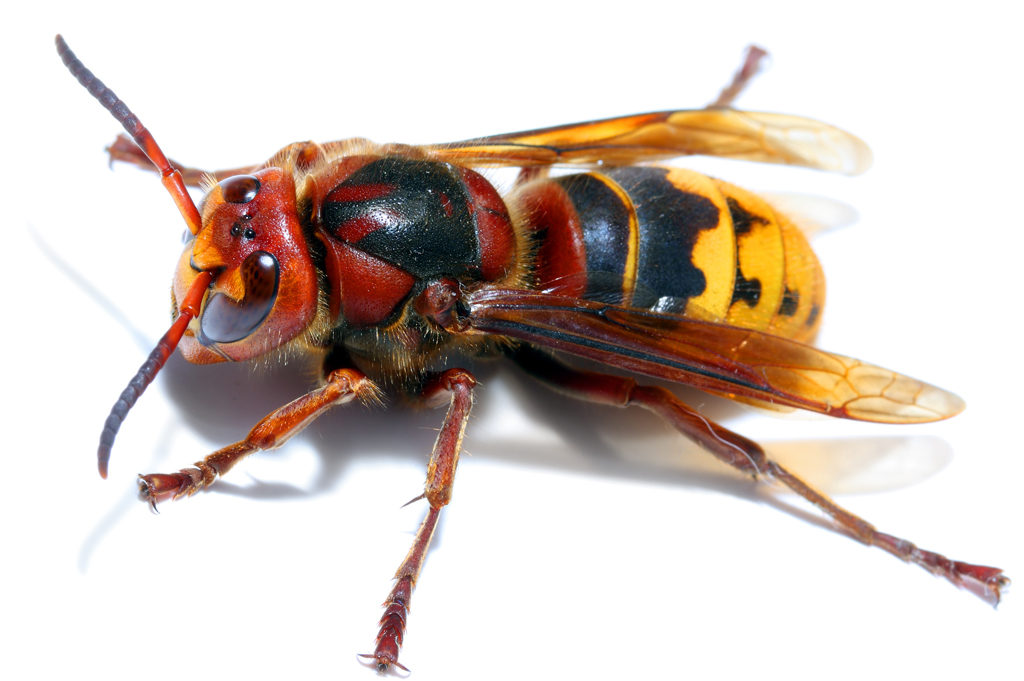v Hornets: Quick Facts What does a Hornet look like? What do Hornets eat? Where do Hornets live? Are Hornets dangerous? How can I prevent a Hornet infestation? How do I get rid of Hornets?

• Can also be called the Giant Hornet
• Common name comes from its introduction from Europe to the New York area during the 1800’s
• Much larger than Yellow Jackets
• Unlike most stinging insects, Hornets can be quite active at night
• Brown with yellow abdominal stripes and a paler face
• Between ¾” and 1-1/2” long
• 6 legs
• Antennae
• Long, robust shape
• Hornets prey on a number of larger insects such as grasshoppers, flies, yellow jackets, and bumble bees
• They also eat tree sap, fruit, and honeydew (secretions for aphids)
• Hornets live in hollowed out trees, bars, outbuildings, hollow walls of houses, attics, and abandoned bee hives
• Unprotected nests are usually covered in a brown envelope made of cellulose from decaying wood
• Hornets can do a great deal of damage to trees and shrubs as they remove the bark to get to the sap
• They also use the bark fiber to build their nests
• They have also been known to chase their invaders for large distances
• A Hornet has a smooth stinger and is capable of stinging it’s victim multiple times
• Hornet stings also carry venom. The venom can produce pain, itching, and swelling for up to 24 hours.
• Hornet stings, much like other stinging insects, can produce an allergic reaction in humans
• Exchange exterior light bulbs to yellow bulbs
• Promptly remove and fruit that falls from the trees
• The Hornet’s ability to stick multiple times makes this a job for the professional.
• If you suspect an infestation, it is recommended that you contact a licensed pest control specialist. Please call DKS Pest Control at (724) 478-5344.
